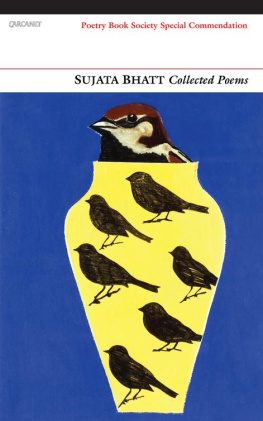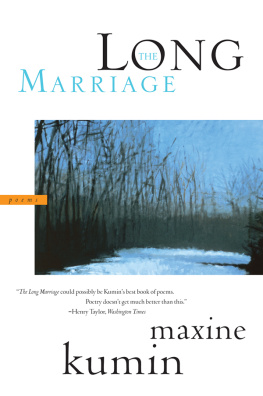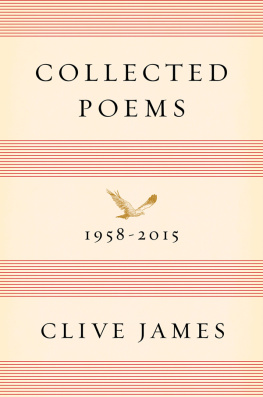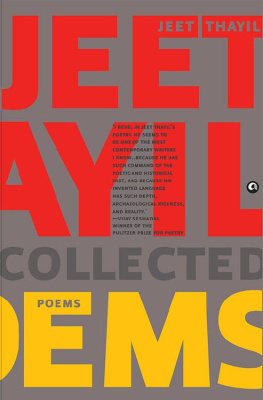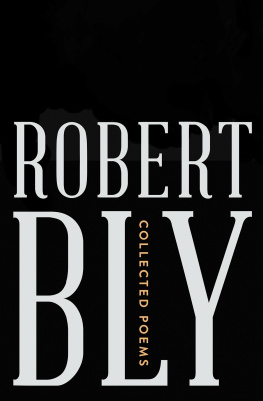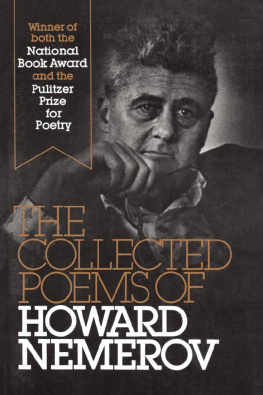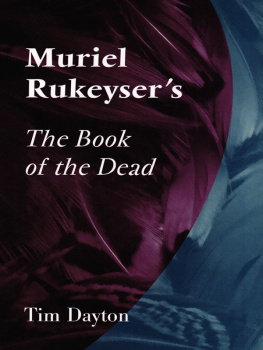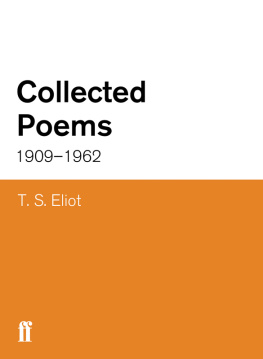Herzog Anne F. - The collected poems of Muriel Rukeyser
Here you can read online Herzog Anne F. - The collected poems of Muriel Rukeyser full text of the book (entire story) in english for free. Download pdf and epub, get meaning, cover and reviews about this ebook. City: Pittsburgh;PA, year: 2005;2006, publisher: University of Pittsburgh Press, genre: Art. Description of the work, (preface) as well as reviews are available. Best literature library LitArk.com created for fans of good reading and offers a wide selection of genres:
Romance novel
Science fiction
Adventure
Detective
Science
History
Home and family
Prose
Art
Politics
Computer
Non-fiction
Religion
Business
Children
Humor
Choose a favorite category and find really read worthwhile books. Enjoy immersion in the world of imagination, feel the emotions of the characters or learn something new for yourself, make an fascinating discovery.

- Book:The collected poems of Muriel Rukeyser
- Author:
- Publisher:University of Pittsburgh Press
- Genre:
- Year:2005;2006
- City:Pittsburgh;PA
- Rating:4 / 5
- Favourites:Add to favourites
- Your mark:
- 80
- 1
- 2
- 3
- 4
- 5
The collected poems of Muriel Rukeyser: summary, description and annotation
We offer to read an annotation, description, summary or preface (depends on what the author of the book "The collected poems of Muriel Rukeyser" wrote himself). If you haven't found the necessary information about the book — write in the comments, we will try to find it.
The collected poems of Muriel Rukeyser — read online for free the complete book (whole text) full work
Below is the text of the book, divided by pages. System saving the place of the last page read, allows you to conveniently read the book "The collected poems of Muriel Rukeyser" online for free, without having to search again every time where you left off. Put a bookmark, and you can go to the page where you finished reading at any time.
Font size:
Interval:
Bookmark:

Indeed, that collection, which Rukeyser edited herselfto the best of her abilities, toward the end of her life and after she was debilitated by a series of illnesses and strokesincludes almost all the poems that Rukeyser published in her numerous volumes during her lifetime. As the coeditors of this newly envisioned Collected Poems, we have been acutely aware of the necessity of this new volume since we first began doctoral dissertations on Rukeyser in the early 1990s. It was frustrating at that time to realize that such a monumental figure of twentieth-century American poetry was no longer in print. Only readers who had access to libraries with extensive holdings or were motivated to pursue Rukeyser's work through used bookstores could piece together her poetry and prose works. Since that time, however, there has been a steady increase in new releases of portions of Rukeyser's writing: Kate Daniels's edition, Out of Silence: Selected Poems of Muriel Rukeyser (1992); Jan Heller Levi's poetry and prose collection, A Muriel Rukeyser Reader (1994); Jan Freeman and Paris Press's reissuing of The Life of Poetry (1996); The Orgy (1997); and Houdini: A Musical (2002); and most recently, Adrienne Rich's Muriel Rukeyser: Selected Poems (Library of America, 2004). The publication of our critical collection, How Shall We Tell Each Other of the Poet?: The Life and Writing of Muriel Rukeyser (1999), along with the dozens of recent scholarly essays probing Rukeyser's work, all speak to the need for this newly edited and annotated Collected Poems. It is time that Rukeyser's oeuvre is more accessible, and we hope that this volume will continue to clarify the significance of Rukeyser as an American poet.
Rukeyser's preface to her 1978 Collected Poems indicates her intent to make that book comprehensive. She opened by meditating on the notion of All the poems and elaborated: all the poems are included; only the translations have been removed (v). In fact, though she acknowledged a desire to make cuts, to rewrite and to leave out, she concluded: this is the truth of how the poems stand and how things formed for me (v-vi). Throughout our work, we have striven to adhere to the spirit of openness and inclusivity Rukeyser professed when envisioning the 1978 Collected Poems. We have attempted to gather all the poems, even while realizing the impossibility of following this mandate. Among Rukeyser's papers, primarily in the Library of Congress archives and the Henry W. and Albert A.
Berg Collection of the New York Public Library, are drafts of poems written on scraps of paper, corners of envelopes, and backs of playbills. Some of these appear to be nearly completed. Other poems are handwritten on notebook paper with scribbled revisions penciled in. Thereare typed poems that were never published, but appear ready or near ready for publication, and drafts of tables of contents that include titles of poems we have not located. Additionally, there is a handful of poems that were published in journals and never appeared in Rukeyser's books. Ultimately, we determined that the transcription, analysis, and study of these previously unpublished, uncollected poems for the purpose of publication must wait for another project.
From the beginning, it has been our intent to produce an edition that once again makes available Rukeyser's collected poetry as she envisioned it. Throughout her life, when she articulated what was most important to her about poetry, she asserted the significance of the writer/poem/reader triad: poems are created and exist because of a relationship between the poet and her audience. In The Life of Poetry, Rukeyser told the story of asking a student in her writing workshop to tear up a poem he had written, ostensibly destroying the visible copy, and then asked her students if the poem still existed. For Rukeyser, the poem still existed as a work of art because it had been brought alive within the relationship of poet and witnesses, not by the materiality of ink on paper. She wrote, I cannot say what poetry is; I know that our sufferings and our concentrated joy, our states of plunging far and dark and turning to come back to the worldall are here. and there is an exchange here in which our lives are met, and created (172).
In presenting this collection with annotations, we hope to perpetuate and strengthen the exchange, the relation of poet, poem, and reader. We have chosen not to construct this book as a variorum that would track the multiple appearances in text of Rukeyser poems, but rather to emphasize the essential triad of poet, poem, and audience. While Rukeyser published many of her poems from first drafts, others went through multiple drafts and were sometimes revised from one printing to the next. In the majority of these cases, such revisions were small: a word change or a shift in punctuation or spacing. In a handful of poems, she made substantial revisions from a typescript or early journal printing to the publication in one of her books. In instances where we have identified substantial changes, we refer the reader to the source of the earlier printing within our textual notes.
We leave questions of the analysis of Rukeyser's revision process to future scholars, and hope that this edition will inspire enough interest to make possible further publications of her work. Researching for this collection, we have made numerous discoveries and accompanying editorial decisions that result in an enriched Collected Poems, one that includes more poems than the 1978 edition. We have reproduced each of the twelve original volumes of poetry published in the 1978 Collected Poems in chronological order. To these, we have added translations, Wake Island, juvenilia, and a final poem of Rukeyser's that appeared in print just before her death. Additionally, we have included extensive annotations. Rukeyser's translations of Octavio Paz were published in The Green Wave(1948) and Breaking Open (1973), and a selection of translated Northern/Eskimo poems and rari poems was also published in The Green Wave. In other volumes, she published translations of individual poems of several other poets: Vicente Aleixandre, Charles Morice, Te Hanh, Hans Carossa, and Gunnar Ekelf.
In a typescript of the table of contents for the 1978 Collected Poems, Rukeyser included these translations, though they were ultimately omitted. After the Collected Poems was published, Rukeyser referred to that big book that holds back a big door, and we suspect that publishing pressures to limit page length may have contributed to the decision to exclude the translations. Rukeyser gives us some clue to her ideas about translation in a few different places. In her endnote for the Northern Poems, she refers to her translation work as a type of adaptation. Poet-critic Kate Daniels notes in her introduction to a double-issue of
Font size:
Interval:
Bookmark:
Similar books «The collected poems of Muriel Rukeyser»
Look at similar books to The collected poems of Muriel Rukeyser. We have selected literature similar in name and meaning in the hope of providing readers with more options to find new, interesting, not yet read works.
Discussion, reviews of the book The collected poems of Muriel Rukeyser and just readers' own opinions. Leave your comments, write what you think about the work, its meaning or the main characters. Specify what exactly you liked and what you didn't like, and why you think so.

